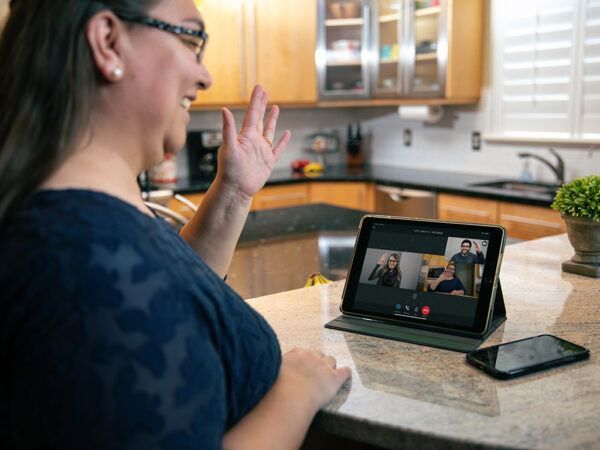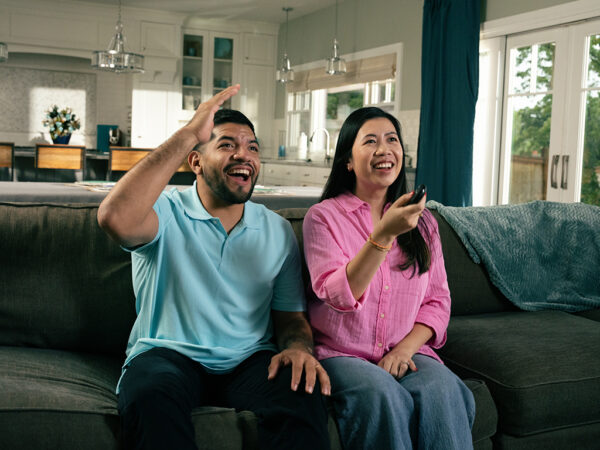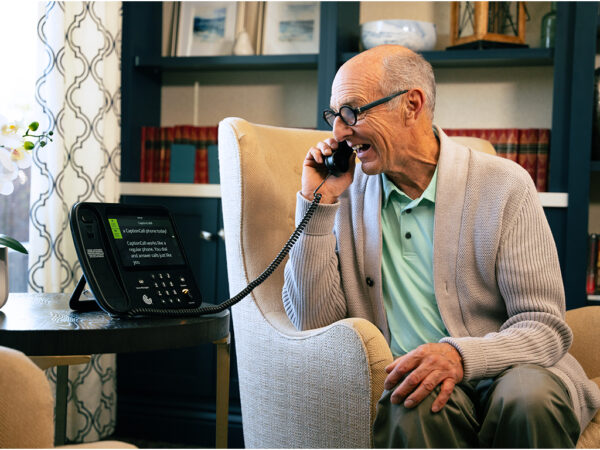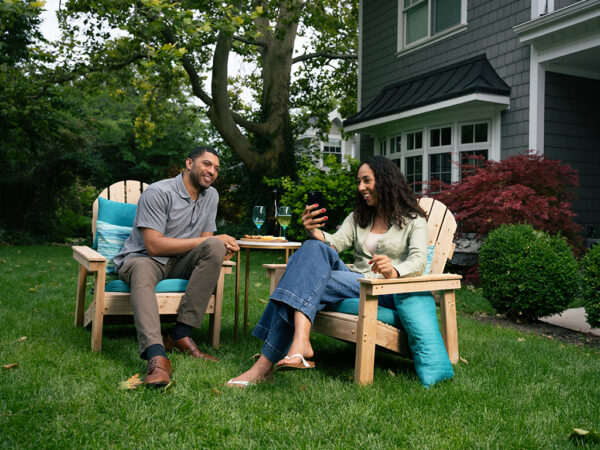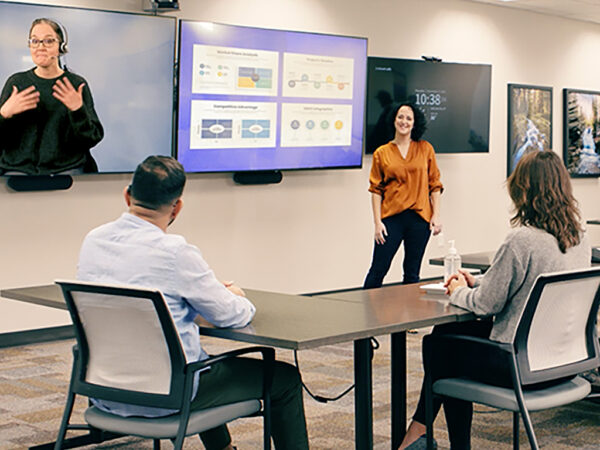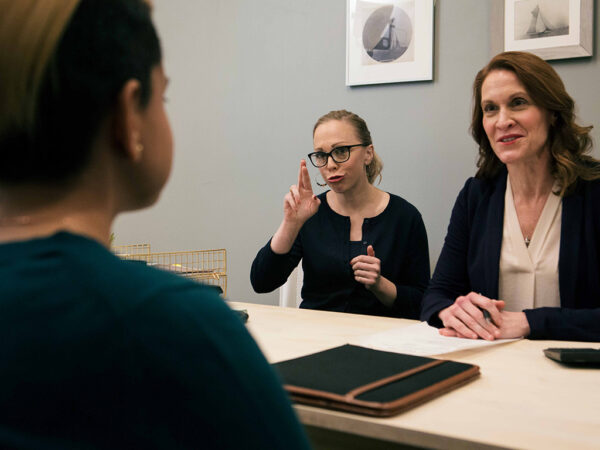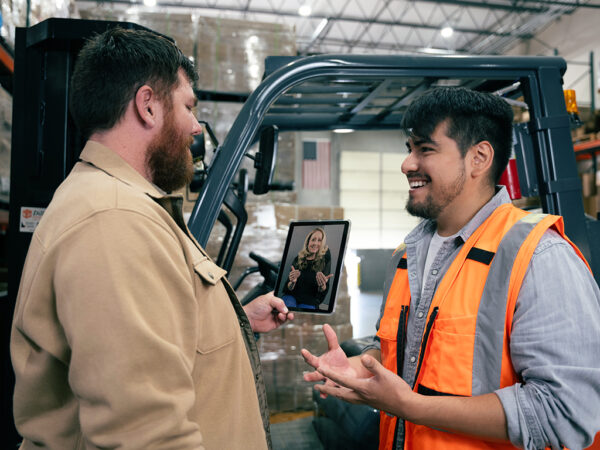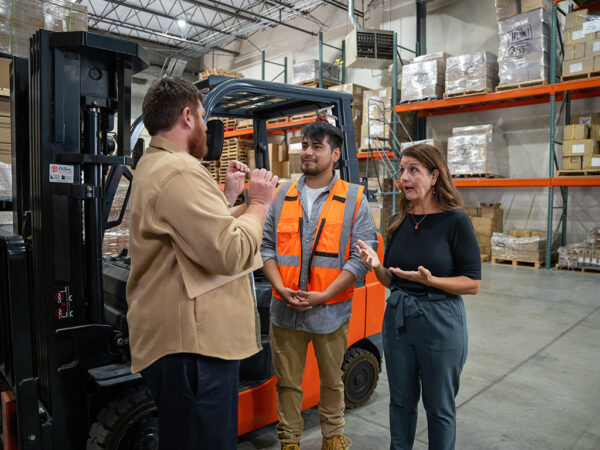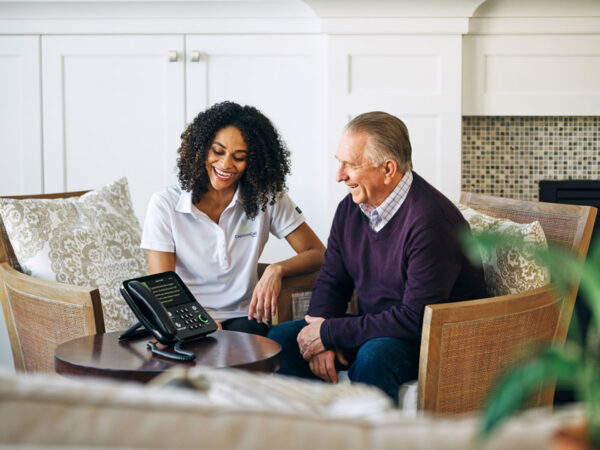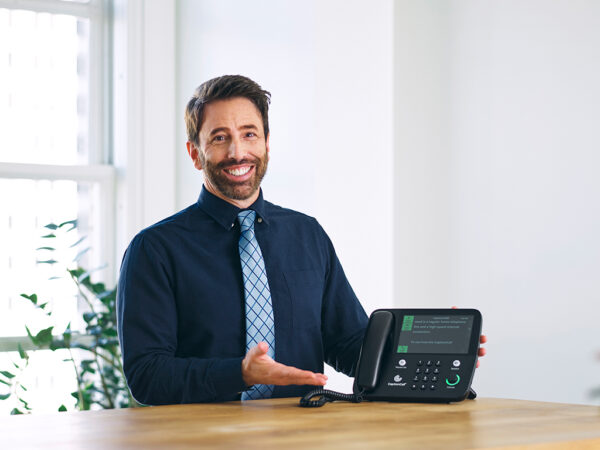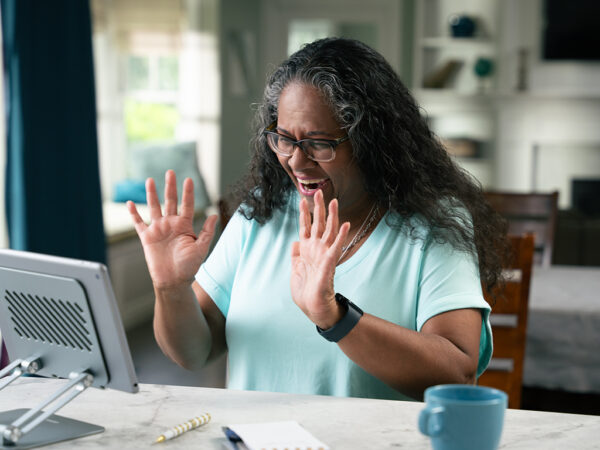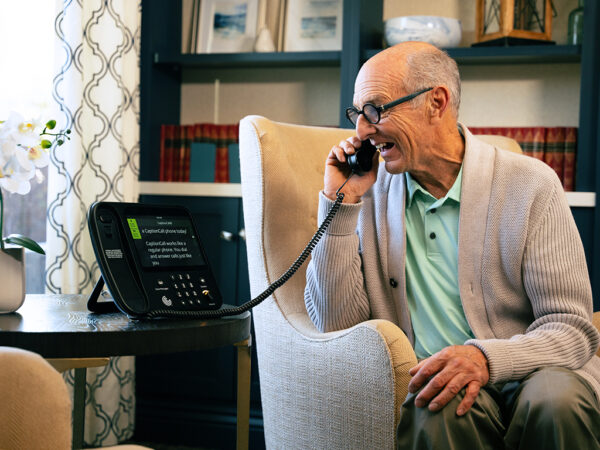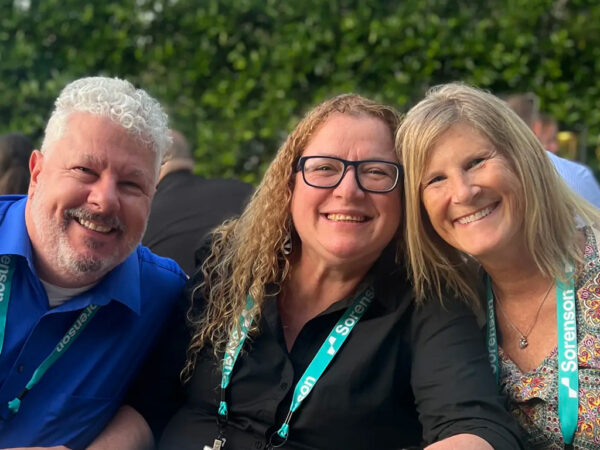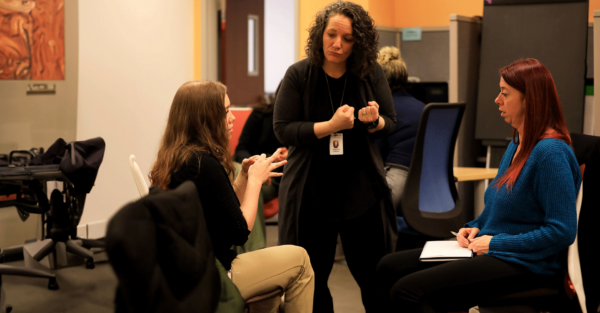Social Isolation Among Seniors with Hearing Loss
December 5, 2024
 As the U.S. senior population climbs, so does hearing loss. More than 30% of seniors 65 and older experience hearing loss, reaching 40% for those 75 and older.1 A sudden or gradual hearing loss can be a jarring experience for seniors already dealing with health or community issues.
As the U.S. senior population climbs, so does hearing loss. More than 30% of seniors 65 and older experience hearing loss, reaching 40% for those 75 and older.1 A sudden or gradual hearing loss can be a jarring experience for seniors already dealing with health or community issues.
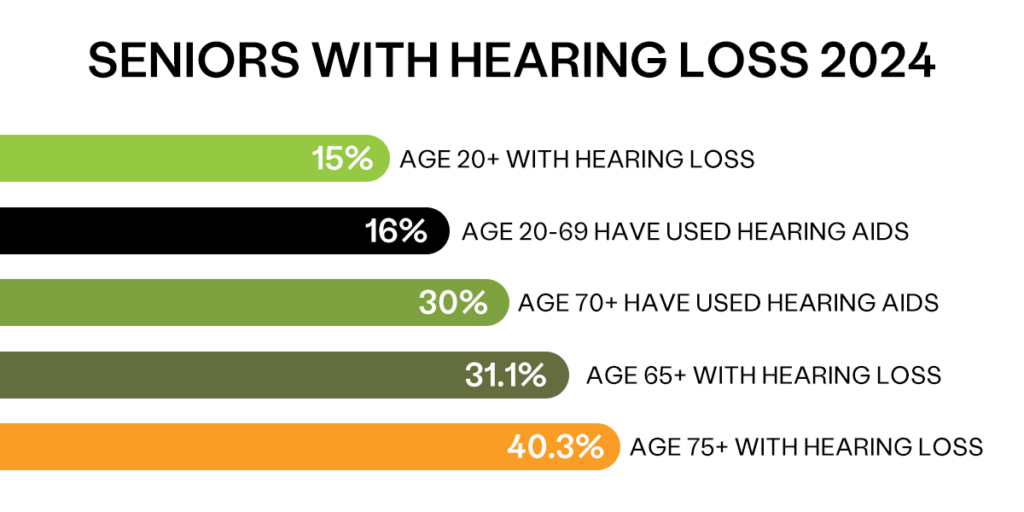
Social isolation is a lack of contact or meaningful interaction with friends, family, and the larger community. As one gets older, social isolation can occur due to health issues, the deaths of loved ones, and especially hearing loss. Add this to the fact that 27% of adults aged 60 and older live alone.2 Older adults may already be coping with social isolation when they begin losing their hearing.3 Since communication is the root of social interaction, hearing loss can sap enjoyment of social activity. Conversations become muffled and faded, forcing a retreat into solitude. Seniors with hearing loss use tools to support their communication and independence. These solutions include:
- Captioned phone service4
- Mobile apps5
- Hearing aids
With assistive technology becoming more accessible, social isolation among seniors with hearing loss can be alleviated.6
Understanding social isolation in the context of hearing loss
Social isolation is a significant challenge for seniors with hearing loss. It concerns not only the physical aspect of being unable to hear but also the social and psychological effects. The psychological impact of hearing loss can be profound, leading to emotional distress, frustration, and cognitive overload. I am reminded of my grandmother, who began losing her hearing in her 70s. Before that, she was talkative and loved sharing stories, but she became withdrawn when she realized she couldn’t follow conversations at the family table. One-on-one conversations became the norm for her. She loved shopping if only one person went with her, but she was not the same person she had been before the hearing loss. For Paul, 82, the impact of social isolation alleviated when he got his first pair of hearing aids. They help him feel included in conversations, and he doesn’t say “What?” as often anymore. Living alone affords him the solitude he craves, surrounded by books and art, and he has regular social engagements. Seniors who crave social interaction often find hearing loss robs them of this joy. Consequences can include:
- Decreased social activity
- Miscommunication and misunderstandings
- Strained family relationships
- Stigma7
Challenges for seniors with hearing loss
Hearing loss can make everyday interactions discouraging. Some common frustrations can include:
- Phone conversations
- Group conversations
- TV and film viewing
- Discerning speech and sounds
- Living independently
- Social misunderstandings
Hearing loss also affects quality of life in many ways:
- Limited access to treatment: The stigma of hearing loss can prevent seniors from accessing hearing aids and assistive technologies8 when needed. Lack of awareness and access are also factors.
- Increased health risks: Studies show links between hearing loss and cognitive decline, falls, and depression.9
- Insufficient healthcare communication: Hearing loss can lead to misunderstandings and miscommunication between seniors and healthcare professionals, which can have serious health consequences.
- Poor communication: Communication challenges can lead to low interest in social activity, frustration, and detachment.
While these challenges can be overwhelming, solutions such as assistive listening devices10 and family support can help seniors regain their independence.
Benefits of staying socially connected

Maintaining social connections is good for everyone, not only seniors. Here’s how being socially engaged yields benefits for seniors with hearing loss:
- Better mental health: Daily social interactions stave off depression and anxiety.11
- Improved cognition: Social activity keeps the brain active and sharp.12
- A longer life: Studies show that strong social connections can improve lifespan.13
- Improved emotional health: Sharing life experiences with others boosts quality of life. Having confidants is invaluable during tough times.
- Sense of belonging: Being part of a community helps seniors feel valued.
- Promotes physical activity: Social activities involving group exercises and daily walks encourage movement.
- Improved well-being: Socially active seniors report being happier and more content.
A crucial aspect of supporting social connections for a senior with hearing loss is using hearing aids. However, only 1 in 6 people with hearing loss uses this technology.14 Despite more seniors experiencing hearing loss yearly, hearing aid use is seeing slow growth.
Technology’s role in combating social isolation
Assistive technology’s continued advancements are a boon for seniors with hearing loss, giving them ways to combat social isolation and protect themselves. Here’s how this technology plays a vital role in allaying social isolation:
- Video calls: Services like Skype and FaceTime enable seniors to converse face-to-face with friends and family.
- Mobile apps: Many apps, including CaptionCall Mobile and Sound Amplifier for iPhone, are available to seniors with hearing loss.15
- Telehealth services: Telehealth became more available during the COVID-19 pandemic and enables easier access to healthcare services.16
- Smart home devices: These devices connect to the internet and can help seniors live more independently without relying on others. Some examples are Google Home, ecobee Smart Thermostat, and SimpliSafe Home Security System.
- Personal Emergency Response Systems (PERS): These come in wearable devices that seniors can use to contact emergency services and family members.17
Seniors today overall are growing more comfortable with technology, with 81% of adults 60 to 69 years of age owning a smartphone.18 However, there’s high interest among seniors to make smart technology more user friendly.19
CaptionCall: A key tool to stay connected
Sorenson, the leading language services provider for the Deaf and hard-of-hearing worldwide, provides no-cost captioned phone services for seniors with hearing loss who need captions to use the phone effectively20 through CaptionCall and CaptionCall Mobile.21 CaptionCall benefits include:
- Live captions in time with conversation
- Adjustable amplification settings
- Saved transcripts
- Stored contacts
- Real-time captions for 911 calls
- Captioned voicemails
A leader in the industry, Sorenson is paving the way for seniors to maintain solid social connections through captioned phone services. CaptionCall is part of a federally funded program, so Sorenson doesn’t charge users for the service or equipment.
Practical tips to alleviate social isolation among seniors with hearing Loss
We know social isolation can affect a senior’s health and well-being. People with hearing loss who need captions to use the phone the same way a hearing person does can stay connected through captioned phone calls:
- CaptionCall: Sorenson’s CaptionCall service for landline phones converts speech to text, which helps seniors easily follow conversations and creates a gratifying experience.
- CaptionCall Mobile: The mobile caption app is useful away from home and for those who prefer using a smartphone or tablet. This has the same features and benefits as CaptionCall.
CaptionCall by Sorenson provides user-friendly guides and customer support, as well as complimentary delivery, installation, and training.22

In addition to getting CaptionCall for captioned phone calls, these tips can extend your social connections beyond friends and family:
- Join a local community group: Explore the local senior center or church. Many of them have a range of activities, from cooking to exercise classes. Search Facebook groups, Meetup | Find Local Groups, Events, and Activities Near You , and AARP.
- Volunteer: Volunteering can provide a sense of purpose. Check out VolunteerMatch and Create the Good.23 You can also contact local organizations.
- Maintain connections online: With assistive technologies and social media, staying in touch with family and friends is easier than ever.
- Explore online learning: Signing up for online courses and workshops is a way to meet others while exploring interests.
- Join a support group: This provides a safe space for sharing your experiences and getting emotional support.24
- Find a community garden: Being outside in nature is therapy for many people, and this is a wonderful way to connect with neighbors.25
- Engage in daily physical activity: Look for exercise groups tailored for seniors.
- Adopt a pet: There are many health benefits to owning a pet.26
- Engage with younger people: Young people and seniors can both learn from the other generation.Learn something new: Exploring a new hobby or interest can lead to new friends and more fulfilling experiences.
Conclusion
Social isolation among seniors with hearing loss is a grave issue but with assistive technology — including CaptionCall by Sorenson — it is possible to break down communication barriers and stay connected.
Maintaining social connections for seniors contributes to increased health, well-being, and longevity. Embracing modern technology can grant seniors newfound confidence and a higher quality of life.
Sorenson is here to help you take advantage of CaptionCall’s features and benefits. We encourage you to reach out and connect with us to build stronger ties with your family and community. Sign up for CaptionCall today.
Sources
- Hearing Loss Statistics 2024: More Common Than You Might Think
- Older people are more likely to live alone in the U.S. than elsewhere in the world
- NCBI - WWW Error Blocked Diagnostic
- Captioned Phones for Seniors
- The Best Hearing Loss Apps of 2023 - Sorenson
- A Longitudinal Framework to Describe the Relation Between Age-Related Hearing Loss and Social Isolation - Aysha Motala, Ingrid S. Johnsrude, Björn Herrmann, 2024
- The Stigma of Hearing Loss
- Assistive Devices for People with Hearing, Voice, Speech, or Language Disorders
- Hearing Loss and Cognitive Decline in Older Adults
- Assistive Devices for People with Hearing, Voice, Speech, or Language Disorders
- Social Connection
- 3 ways to build brain-boosting social connections - Harvard Health .
- Social Relationships and Mortality Risk: A Meta-analytic Review
- Reasons for Low Hearing Loss Treatment
- The Best Hearing Loss Apps of 2023 - Sorenson
- The State of Telehealth Before and After the COVID-19 Pandemic
- Best Personal Emergency Response Systems (PERS)
- 2020 Tech Trends of the 50+
- 2023 Tech Trends: No End in Sight for Age 50+ Market Growth
- Senior Living Residents - Sorenson
- Captioned Phones for Seniors
- Captioned Phones for Seniors
- Create the Good: Find Volunteer Opportunities Near You
- Joining a Hearing Loss Support Group
- What is a Community Garden?
- How Having a Pet Can Benefit Your Health







